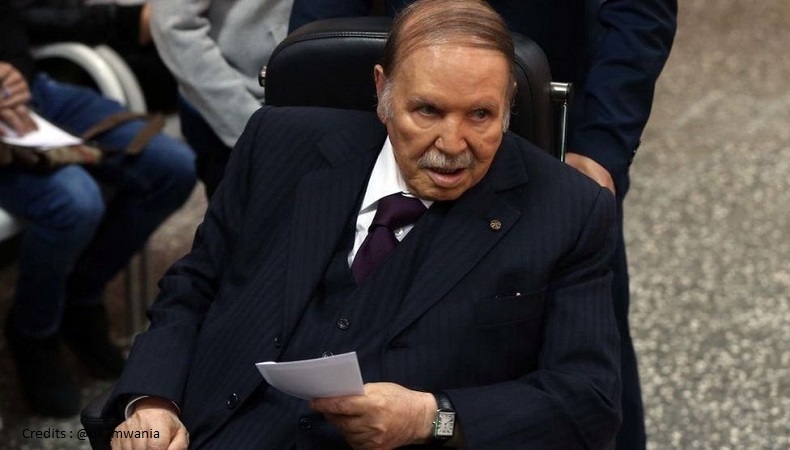Who was Abdelaziz Bouteflika?

Since his fall in April 2019, under pressure from the army, Bouteflika remained entrenched in solitude in his residence in Zeralda, west of Algiers. After weeks of mass demonstrations against his desire to run for a fifth five-year term, his downfall had become inevitable.
Bouteflika was president for 20 years before being kicked out. In 2013 he had had a severe stroke and had started to appear less and less in public since then, but he remained in power until two years ago. “Overwhelmed” by the so-called Arab Spring, in 2019, the elderly and sick Algerian rais had initially announced his intention to run for a fifth term for president and then take a step back after the Hirak movement’s street protests and the shoulder of the military.
Militant of the National Liberation Army (ALN), Bouteflika held various posts in the shadow of the “mentor” Boumediene after his country’s independence. The election crowned the political climb as president in 1999, a position held until his resignation in 2019 following significant widespread protests. After his farewell, the former Algerian president settles in Zeralda, where he dies on the evening of September 17, 2021, at the age of 84. Health conditions often influence president Bouteflika’s political work.
Between 2005 and 2006, the first hospitalizations arrived in Paris, but it was May 19, 2013, the date destined to change the head of state’s life and of Algeria itself forever. That night Bouteflika suffers a severe stroke that forces him to extended hospitalization. As a result, he is, once again, hospitalized in France, and for several months does not appear on the video.
He returns to Algiers only in July, but his conditions appear critical. The president has an exhausted face, often staring into space. Many question his ability to continue with his functions. However, in 2014 he was a candidate for a fourth term after winning the 2004 and 2009 elections. In the following years, he appears on video in a wheelchair, with apparent difficulties in speaking and forced to be assisted in every movement. Bouteflika remains president only because of the inability of the army and other important actors of the Algerian power to find a successor. In this context, the “magic circle” around Bouteflika seems to be the actual manager of the presidency.
When in February 2019, the head of state announced his intention to run, the Algerians decided to ask for a step back instead. In the meantime, the population is beginning to suffer the effects of a considerable economic crisis, takes to the streets worried about having a president physically unable to perform his duties for another five years.
Bouteflika was born in Oujda, Morocco, on March 2, 1937. His family, however, is originally from Algeria, a country from which his father emigrated at a young age to go to work in Moroccan territory. Thus, he lives in Oujda for the entire period of childhood and adolescence. In this city, he completes his studies which he interrupts, however, to enlist in the ALN. Abdelaziz Bouteflika is the second son of his father, but the first child was had by the parent with his second wife, Ghezlawi Mansuriyya.
The latter works in a hammam in Oujda and contributes to the sustenance of the family. Bouteflika altogether has three half-sisters, four brothers, and one sister. In the official biography of him, the birth and adolescent growth in Morocco is omitted. That is for political and ideological reasons. However, his relatives confirmed he spent his adolescence in Oujda, within the large local Algerian community.
When the former president was 18, Algeria was on the eve of what is then remembered as the war of liberation from France. In the country and the Algerian communities scattered in the neighboring states, the National Liberation Army (ALN) was born, the backbone of the future army of Algiers. Bouteflika in Morocco enlisted among the fighters shortly after reaching the age of majority. It is unknown whether his enlistment is to be considered voluntary or not. In fact, at that time, students who did not integrate into the ALN were accused of desertion and treason. His first role in the National Liberation Army is that of “controller.”
Bouteflika reports in his weekly summaries what is happening within the ranks of the ALN in Morocco and western Algeria. A task carried out for several years allows him to get very close to the higher spheres of the Algerian army.




